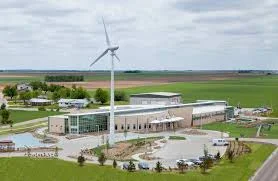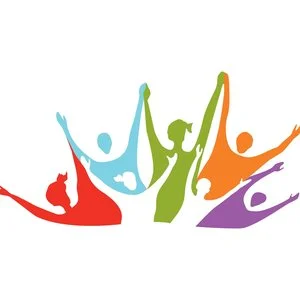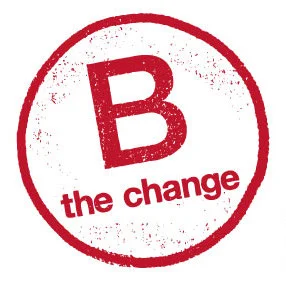NOTE: This interview excerpt is transcript only
“Everyday, human beings have potential for solving problems. ”
Dr. Elinor Ostrom (August 7, 1933 – June 12, 2012) was an embodiment of restorative leadership with her belief in the power of community, her practice of listening first, and her unassuming yet tireless resolve. Light-hearted and no-nonsense, she charted new territories as the first non-economist and woman to receive the Nobel Memorial Prize in Economics, the first woman to be elected president of the American Political Science Association, and the first woman to chair the political science department at Indiana University, to name a few.
Lin was a political economist who was known for producing globally relevant research on common pool resource management that shed light on how to bring out the best of diverse humanity for long-term sustainable yields. With systems nuance she revealed that, when given the opportunity to communicate, human beings tend toward protecting the commons and serving the common good. Her perspective was significant in that it challenged the very popular common notion of “Tragedy of the Commons”, which holds that private property is the only effective method to prevent finite resources from being ruined or depleted. Although Lin recognized that the world's grazing lands, forests, irrigation waters and fisheries are all certainly finite, her unique perspective was that it is possible for communities to share and care for these resources equitably and sustainably.
Having been born to immigrant parents who had received very little education, and herself being faced with a society that did not value educated women, Lin had to find belief in herself and her academic from within. With her sharp mind and cheery laugh, Lin moved boldly and unapologetically through her life and career. For her courage and willingness to think outside the box, Lin was honored in Time 100 for 2012, Time magazine’s annual list of the world’s 100 most influential people.
On Leading Transcript
Seana Lowe Steffen, host: Lin, what compels you to do the work that you do?
Elinor Ostrom, guest: I don’t know. I haven’t had any long–run goal as ‘the goal.’ I’ve been interested and fascinated with what I’ve done. And as soon as I started doing studies of one kind or another, other things kind of popped up. And then ‘Oh that’d be interesting! That’s interesting!’ At some levels, I’ve responded to opportunities rather than going out trying to make new ones that don’t have to do with the ongoing thrust of what we’re doing. While I had a lot of blocks at a young level, having gotten over those, there have been a lot of interesting questions. Pursuing those has been my goal – not having to make fancy money or any of those sorts of things – I’m not interested. [laughter]
Seana: So from mass adoption of economies of scale to the Tragedy of The Commons, you have consistently shattered inappropriate, inaccurate presumptions. What’s your next frontier?
Elinor: I’m working very hard on a broad language that will cross the social and ecological. How do we get concepts that are general? …. I’m trying to create a common language that we can slowly evolve and I don’t think that can get done overnight. Right now, biology and resource economics and resource environmental they have different languages and they don’t know how to talk about people and vice versa. We really have to solve this problem slowly but surely and it has to be by the contribution of a lot of people—it can’t just be me saying, ‘Do it this way.’
Seana: That sounds like a bold frontier.
Elinor: Yeah, it is. [laugh] It’s kind of scary!
Seana: What does sustainability mean to you?
Elinor: It’s one of these words that is used a lot and not well defined…. I think we have to deal with the globe and the ecosystems of the globe, and then the humans who are using it, as two really important aspects of that…. [O]ne of the reasons ecosystems are so important is that humans are dependent upon a vast variety of ecosystems, from oceans and pastures to agricultural fields in Ohio. Particularly, biodiversity is one of the things in need of being sustained from the perspective that people are taking lots of actions that limit biodiversity and yet it is rather crucial for the long run. What we know from the ecologists is that, in many complex ecologies, there are seven to ten species that combine to make it a viable system productive over time. Sometimes you can lose one or two, but if you lose four or five, the other ones are just not able to sustain it. You need a vast variety of individual organisms and communities of organisms to make viable ecological systems that produce an immense amount of the services that we all depend on.
In terms of humans, it’s a puzzle. I am very worried about overpopulation…. What is encouraging is that as people get wealthier they are likelier to have one or two children rather than ten. But if they become wealthier and consumer-oriented rather than sustainability-oriented, then the wealth may generate more harm for the rest of the world than the production of having all the kids. So there is a tradeoff, and many people in the West don’t take it seriously that what they do makes a difference because the world is so big and they don’t have an image that what they do makes a difference.
Seana: Given your vast experience and exposure, what is it really going to take to overcome the barriers to living sustainability?
Elinor: Slowly but surely getting people to be aware of the consequences of their own actions and to start thinking about complex systems rather than simple little nice and neat systems…. If I could change the rhetoric of, ‘Oh this is a global problem that needs a global solution,’ to ‘Ah, this is a very complex problem of multiple layers and having a global policy is one of very many things we can be doing.’
Seana: If you could change one thing about the world with a snap of your fingers, what would you change and why?
Elinor: The slowness with which we are moving toward a global pact on climate change…. I’ve given up at one level, and am encouraging all sorts of local action and a polycentric approach to global change. But we do need a global treaty. So if there is one thing it would be a good global treaty.
Seana: What are you most proud of accomplishing or contributing through your work so far?
Elinor: Showing that everyday, human beings have potential for solving problems. A lot was missed for a while: we mere humans were not able to do much and we had to wait for the leaders up there. I don’t think that’s a very productive way to think….
Seana: What are keys to your success with what you have accomplished?
Elinor: Perseverance. [Laughter]
Seana: And what do those working for global sustainability and planetary wellbeing need to be successful?
Elinor: Each other! [Laughs] And to get more of us.
Engage to Sustain the Commons
After critiquing the foundations of policy analysis as applied to natural resources, Elinor Ostrom here provides a unique body of empirical data to explore conditions under which common pool resource problems have been satisfactorily or unsatisfactorily solved. Dr Ostrom uses institutional analysis to explore different ways - both successful and unsuccessful - of governing the commons.
The Ostrom Workshop focuses on the study of governance as it relates to a variety of research areas. As of August 2016, we have established, or are in the process of establishing, three research programs: Cybersecurity and Internet Governance; Natural Resource Governance; and Political, Economic, and Legal Institutions and Organizations. Over the next three years, we plan to add other programs, including governance of data; financial organizations; international organizations; public health; and education.



























